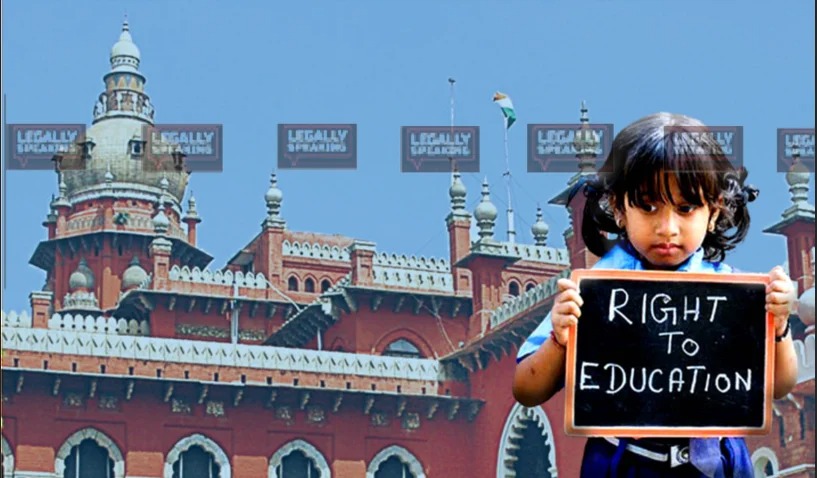
The Madras High Court recently held that the State is required to “absorb” all expenditure and ensure that students from the Economically Weaker Section (EWS) are not required to pay “even a penny” to access education under the Right of Children to Free and Compulsory Education (RTE) Act.
According to a single-judge Justice M Dhandapani said the State cannot avoid responsibility by claiming that the Act only provides for reimbursement of a child’s tuition fee.
“In the background of the undisputed position, as is evident from the materials available on record, this Court is of the considered opinion that it is the duty of the State to provide free and compulsory education to the children specified u/s 2 (d) and (e) of the Act by absorbing all the fees that would be payable for the child on its head and it is not for the child, admitted under the aforesaid quota to pay even a penny to get itself educated, as it is the bounden duty of the State under the Directive Principles of State Policy to provide free and compulsory education to children of weaker sections and disadvantaged groups as enumerated under the Constitution but within the framework of Section 12 (2) of the Act,” the bench stated.
The bench was hearing a petition filed by a minor, M Suveathan, through his father, asking the State Commission for Protection of Child Rights to make a decision on their previous representation.
According to the provisions of the RTE Act, the petitioner was admitted to a private, unaided matriculation school in the Vellore district.
His parents paid approximately Rs 11,700 in fees for the next two academic years. However, the school demanded an additional Rs 11,000 for uniforms, study materials such as textbooks and stationery, and so on.
Since the petitioner was unable to pay the same, he was merely permitted to sit in class but was unable to study and learn since he could not afford any books and notebooks, his counsel, Advocate R Sankarasubbu informed the bench.
The state government contended that it was only required to pay or reimburse tuition fees set by the Fee Determination Committee.
Any other fees has to be borne by students admitted under the 25% quota, as specified in Section 12(1)(c) of the Act. As a result, the petitioner must pay the fee for the uniform, notebooks, and study materials, and the State cannot be ordered to pay fees that have not been determined by the Fee Determination Committee, the Tamil Nadu government argued.
The High Court, on the other hand, ruled that the State’s submission was incorrect and could not be accepted.
It stated that books, uniforms, notebooks, and other similar materials are essential components of education.
As a result, the State is required to reimburse the full amount paid for all EWS students, including the petitioner, enrolled in schools throughout the State under the provisions of the RTE Act.




